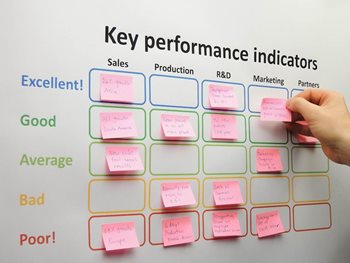There are some simple steps you can take to ensure you're giving strong feedback, including providing actionable objectives, focusing on the positives, and letting employees have their say too. But in order to ensure you're giving the most constructive feedback, there are 8 things you should never ever say.
1. “You should be more like…”
Making direct comparisons between your employees is never a good idea. This can cause tension between colleagues and might suggest you have favorites. It’s also not constructive as it doesn't give them any actionable tips or advice, it just simply states ‘they are better than you and you should be more like them’.
2. “This has been a problem for a while…”
You should be meeting with employees regularly to discuss their progress and give any feedback you may have. If you’ve left something unspoken and allowed it to go on for months, then you have done a disservice to them. Feedback needs to be given frequently and in a timely manner, otherwise employees will remain oblivious to any issues and will continue doing things the way they always have, without learning or progressing.
3. “Everyone thinks…”
When you say ‘everyone thinks’ what you're really saying is that you and other employees have been discussing them. This suggests there are rumors or that several of their colleagues have been talking about them, which is never a nice feeling and could create a negative atmosphere. All feedback should come from you and no one else.
4. “If you don’t start improving…”
No matter what you follow this sentence with, it’s going to come across as a threat. This can leave your employee feeling fearful for their job, demotivated, and more stressed than ever. Instead of focusing on what could happen if they don’t improve, you need to give them actionable steps they can take to help them do their job better. This is important for both parties; it helps employees to develop their skills and it means the business gets a more effective worker.
5. “I hope you can do better next month…”
Using the word ‘hope’ implies that you doubt your employee’s abilities to improve. Instead, you should replace ‘hope’ with more positive phrases such as ‘I am confident you can have a better month’. This shows that you believe in them and that if they follow your advice, they’ll be able to improve in the future.
6. “Please don’t take this the wrong way…”
The fact that you're even having to say this suggests you're going to say something critical or personal that isn't very nice to hear. Before you cross that line, stop and think whether what you're saying is constructive. If it’s not helpful, then it’s probably best you think of a better way to interpret your thoughts to give useful feedback instead.
7. “I have no feedback for you…”
Organizations need to make the development of their employees a top priority and telling them you have no feedback to give them suggests it’s not. If things haven't changed much since you last met, it can still be helpful to recap on their objectives and let them know they're continuing to do a good job. It also gives them a chance to feedback to you and let you know if they have any issues.
8. “I’m worried about you taking on…”
You may be concerned about an employee taking on new responsibilities or new clients, but letting them know you're already doubting their abilities isn't going to help. Instead, it’s best to ask them if they have any reservations about taking on new work and ensuring you’ve put specific and helpful objectives in place to support them in taking on additional responsibilities. You can review this at a later date if you don’t think they're managing well, but it’s important you don't fill them with doubt before they’ve even begun.
Choose your words wisely
You need to be very careful with wording when giving feedback to employees. Using overly critical, threatening, or comparative language can lead to de-motivation, tension, and lower levels of productivity, which is exact the opposite of what feedback is designed to do. Be careful to avoid the phrases above and instead aim to use positive, affirming language to show you have faith in your staff. Even if you're delivering negative feedback, it’s important you choose clear, constructive language.
Access the latest business knowledge in Management
Get Access





Comments
Join the conversation...